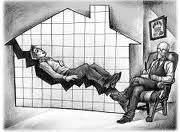.jpeg?width=180&name=download_(2).jpeg) Pay attention to any of the financial news shows, and you'll hear the talking heads discussing how current events have an impact on the stock market. From disasters, both natural and man-made, to decisions by the Fed to recent actions by the President, news events affect our investments. Or, to put it more accurately, investors' responses to these news events affect our investments. The emotional state of investors and the psychology of fear and risk-taking play into the ups and downs of the various markets.
Pay attention to any of the financial news shows, and you'll hear the talking heads discussing how current events have an impact on the stock market. From disasters, both natural and man-made, to decisions by the Fed to recent actions by the President, news events affect our investments. Or, to put it more accurately, investors' responses to these news events affect our investments. The emotional state of investors and the psychology of fear and risk-taking play into the ups and downs of the various markets.
Does Psychology Play A Role In Real Estate Investing
Since real estate investing is... well, investing, is it safe to assume that the real estate market in general and thus the decisions made by individual investors (for after all, the general population of investors is made up of individual investors) are affected by psychological quirks and emotional responses?
You bet your portfolio it is.
So just for funsies, let's talk a little bit about a few psychological phenomena and how they relate to real estate risk and trends in the real estate investing world.
Loss Aversion
Loss aversion is a term used in behavioral finance (yes, there's actually a name for this kind of stuff) to describe people's tendency to prefer avoiding losses to acquiring gains. In other words, the hurt people experience from losing money is greater than the good feelings they get from gaining money. I don't have a PhD in psychology or finance, but it's easy to see how this could be a problem in real estate investing. If we're too afraid of losing money, we may let fear keep us from taking advantage of a good opportunity when it presents itself.
Gambler's Fallacy
There's a good chance you'll recognize this one; perhaps it's even something you've been guilty of yourself. The Gambler's Fallacy is a belief that an event is less likely to happen after said event or a series of said events has happened.
An example of the Gambler's Fallacy: If a flipped coin has landed on heads 10 times in a row, someone might believe that the coin is "due" to land on tails.
This is simply not the case. No matter how many times the coin has landed on heads before, the probability is the same as it always has been that it will land on heads: 50% (we're assuming the coin is perfectly weighted, yada, yada). The coin has no memory of how many times it has landed on heads before; each event is statistically independent.
So how does this relate to real estate investing? If you have determined that your real estate portfolio tends to behave in a certain way over time -- if you know that it tends to generate "X" amount of return on investment -- but your last couple of deals have returned significantly less than that, you may be tempted to behave recklessly with the erroneous belief that you're now "due" for a higher-than-usual ROI to balance things out. This is very dangerous thinking that could cost you a lot of money.
You Do Know She Doesn't Come With the Property, Right?
In his study “Can Agents Influence Property Perceptions Through Their Appearance and Hyperbolic Rhetoric?” Michael Seiler talks about how both men and women (though men, in particular) are susceptible to the level of attractiveness of female real estate agents. The more attractive a female agent is perceived, the more a buyer is willing to pay for a property. Think about that for just a second: People will spend more money on a property based on the looks of the person selling it. Talk about risk!
Any reasonable person can see how patently ridiculous it is that we let something so superficial affect how much we spend on a property. If you find yourself attracted to someone who you're considering buying a property from, be aware of the bias. Make sure your decisions are based on rational criteria.
I'll Take That One! No, That One! Or Maybe That One?
The term "analysis paralysis" refers to what happens when one becomes so lost in the collection of data deemed necessary to make a decision that it keeps him/her from actually making the decision. Fear of making the wrong decision often factors into this phenomenon.
Analysis paralysis can be very detrimental to your real estate career. If you have the opportunity to buy a property that's a good fit for you but can't bring yourself to pull the trigger on the purchase due to uncertainty, you're going to miss out on some good deals. There's a degree of uncertainty inherent in real estate investing, so it's important to make peace with that. Yes, do your research. Definitely analyze the pros and cons and ins and outs of every deal. But if the data you gather is telling you it's time to buy, you have to be willing to take the risks that go along with doing so. It's part of investing in real estate. Risk is something you have to become accustomed to, or you may be in the wrong business. You are your business, and you have to believe that as long as you do your homework, your real estate investment company is going to profit from taking calculated risks in the long run.
It's important to be conscious of the kind of thinking and attitudes with which we approach real estate investing. Examine your mindset and confront any attitudes or beliefs that are illogical and counterproductive.
Is real estate risk something that's given you a hard time at some point? Perhaps someone could learn from your experience, so if you feel comfortable doing so, please share it with us in the comments.












